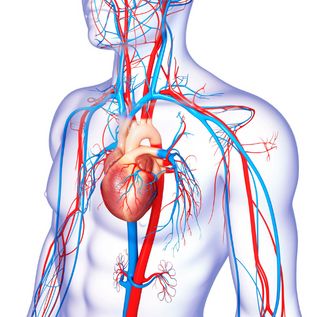
Burnout: Signs, Causes, and Recovery Tips
Burnout is more than just feeling tired or stressed. It’s when you feel worn out in your body, mind, and emotions. It often happens when you deal with stress for a long time — at work, at home, or due to health problems.
As the demands of modern life increase, burnout has become a significant concern affecting millions globally, leading to decreased productivity, mental health challenges, and overall dissatisfaction with life.
A recent global study revealed that Australians in particular experience burnout more than any other country. Data also shows a significant increase in burnout rates worldwide too, with over 60% of workers in some nations reporting feelings of burnout. This disturbing trend is intensified by the increasingly blurred lines between work and personal life. With participants stating their burnout intensified when the pandemic began. Healthcare workers, in particular, are struggling, with up to 82% feeling burnt out. These results underline the critical need to adopt effective strategies to prevent burnout and enhance mental health.
So in this blog, we’ll explain what burnout is, why it happens, what to watch out for, and natural ways to get back on track.
What Is Burnout?
Burnout is when stress keeps piling up and your body and mind can’t cope anymore.
You may feel:
- Very tired all the time
- Distant or detached from people or things you used to enjoy
- Like you can’t keep up, no matter how hard you try
It’s different from normal tiredness. Sleep alone won’t fix it.
Burnout needs you to step back and make changes in your life.
What Causes Burnout?
Burnout can stem from various sources, often involving a combination of external pressures and internal factors:
- Work-Related Stress: High workload, long hours, unrealistic expectations, or a lack of support at work can lead to burnout. The rise of remote work has also blurred the lines between personal and professional life, making it harder to disconnect.
- Chronic Health Conditions: Living with chronic illnesses or conditions like autoimmune disorders can take a toll on your energy levels, contributing to feelings of burnout.
- Lifestyle Imbalances: Poor sleep habits, lack of exercise, and inadequate nutrition can deplete your energy reserves, making it harder to cope with daily stressors.
- Perfectionism and High Expectations: Setting unrealistic goals or having a constant need to perform can lead to feelings of inadequacy and burnout over time.
- Emotional Stress: Managing personal relationships, caregiving responsibilities, or dealing with traumatic experiences can significantly contribute to burnout.
Burn Out Symptoms
Identifying burnout early is essential for effective intervention. Some common symptoms include:
- Physical Exhaustion: Feeling drained, even after a full night’s sleep, and experiencing frequent headaches, muscle pain, or digestive issues.
- Emotional Detachment: Feeling disconnected from your work, hobbies, or loved ones, and losing interest in activities that once brought joy.
- Cognitive Difficulties: Struggling with concentration, memory problems, or feeling mentally foggy.
- Irritability and Frustration: Becoming easily frustrated or cynical, even over minor issues.
- Decreased Performance: Finding it hard to complete tasks, meet deadlines, or maintain productivity.
These symptoms can also overlap with other mental health conditions like anxiety or depression.
Natural Ways to Manage Burnout
Burnout can feel hard to fix, but small steps can help.
Here are some simple, natural strategies:
1. Take Care of Yourself
Make time for things that make you feel happy and recharged.
Tip: This could be anything like reading a good book, walking outside in nature, going on a holiday somewhere new, dancing, enjoying a sauna or massage, gardening, playing your favourite sport, hobby, or game, or simply spending quality time with friends, family, or pets.
2. Eat Well
Food affects your mood and energy.
Eat lots of fresh fruits, veggies, and healthy fats.
Skip processed foods, too much caffeine, and sugary snacks — they can cause energy crashes.
Tip: Eating seasonal produce from farmers’ markets ensures you’re getting the freshest and most nutrient-dense options available.
3. Set Boundaries
It’s okay to say no.
Limit work hours, take breaks, and avoid things and people that drain you.
Tip: Make a “stop-doing” list. Write down things you no longer want to waste energy on and slowly cut them out or at least put time limits on.
4. Move Your Body
Exercise releases feel-good chemicals.
Choose gentle movement like walking, strength training, yoga, dancing or stretching — whatever you enjoy.
Tip: Pick activities you actually like. You’ll stick with them longer.
5. Get Good Sleep
Sleep is key to recovery.
Stick to a sleep routine, wind down before bed, and keep your bedroom calm and dark.
Tip: Use calming scents like lavender to help you relax at bedtime.
6. Get to the Root Cause
There’s no one-size-fits-all solution for burnout because everyone’s situation is different. It really depends on what’s causing your burnout.
For example, if your job is the issue, it might be time to step back and reevaluate. Ask yourself: Am I happy in this job? Is it worth the stress and impact on my health? Maybe you need to explore your options, talk to someone about your workload, or even think about whether a change is needed.
Is your burnout coming from personal responsibilities, health issues, or emotional stress, if so the approach is going to be very different. That’s why figuring out what’s truly draining you is so important—you can’t fix what you don’t understand.
In our Root Cause Analysis, we don’t leave any stone unturned. We offer a fresh perspective, real understanding (because we’ve been there too), practical steps and valuable tools to help you break free from the burnout cycle.
When to Ask for Help
If you’ve tried making changes but still feel burnt out, it might be time to get help.
Functional medicine practitioners can help identify the root causes of burnout and offer tailored suggestions and solutions to restore balance and energy.
Final Thoughts: Take Back Your Energy
Burnout won’t go away on its own. The good news is, by noticing the signs early and making small changes, you can feel better again.
Your health and happiness matter. Taking time for yourself is always worth it.
Need Help?
If you’re feeling burnt out, we’re here for you. Our caring team offers natural, personalized support to help you get your energy back and feel your best. The first step is getting a thorough root cause analysis.



